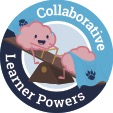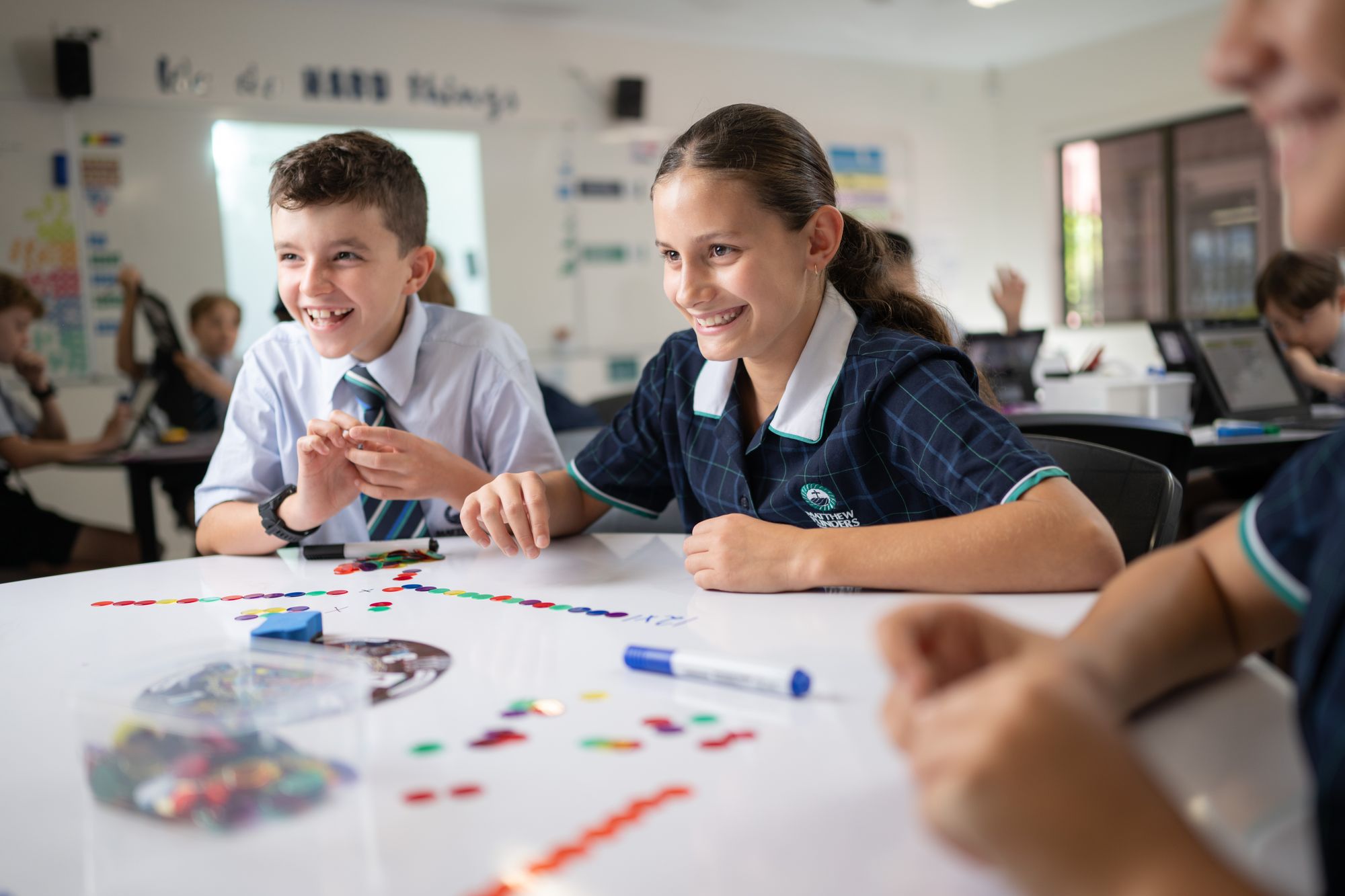Unpacking our Flinders Learner Powers - A Five-Part Series
Article #3: The ‘Collaborative’ Learner Power | By Narelle Goan, Head of Professional Practice and Curriculum, Flinders Primary School
The term ‘Collaboration’ is regularly used by our teachers and other professionals in the field of education.
However, what exactly is collaboration and why is it so important in your child's learning experience?
Collaboration in a primary school environment is learning that involves groups of students working together to solve a problem, complete a task or create a product.
Collaboration is one of the five learning dispositions we encourage through our Learner Powers program to support student learning, achievement and personal development in the Flinders Primary School.
Increasingly, collaboration is a sought-after skill and a mode of human engagement where students work, think and cooperate for a shared purpose, preparing them for the workforce and to enjoy healthy relationships in life.
Researchers Laal and Ghodsi state the benefits of building the skills of collaboration are well documented and reach beyond simply academic outcomes.
Social benefits range from building a diversity of understanding to developing social support systems for learners. Psychological benefits have been noted as an increase in students’ self-esteem and a reduction in anxiety, while academic benefits include active student engagement, promotion of critical thinking and appropriate modelling of problem solving skills.
The benefits of collaboration on classroom culture and social connections have also been incredibly positive, with cooperative learning strategies a focus at Flinders. Our teachers employ cooperative strategies to support positive human relationships, active learning, academic achievement and equal participation of students in the classroom.
Professor John Hattie also identifies cooperative learning as a high-impact instructional strategy for teachers to use that influences learning and has a significant effect on a student’s academic and personal achievement.

Key Takeaways
With this research and evidence in mind, here are some ways parents can support their child’s ‘Collaborative’ Learner Power to help build the following skills.
- Critical thinking: When children collaborate, they learn to consider different perspectives and think critically. By discussing ideas as a family, whether around the dinner table or in the car while driving, children learn to analyse problems from various angles and come up with creative solutions.
- Communication skills: Through collaboration, children learn to express their thoughts clearly, listen actively to others and respectfully share their opinions. These skills are invaluable, not only in school but also in everyday life to be effective as communicators. Try games like ‘Would you rather…?’ where each family member shares their response and reasoning to a funny scenario prompt, such as “Would you rather wear pyjamas to school for a week or eat dessert for every meal?”
- Social skills: Working in groups helps children develop essential social skills, such as teamwork, cooperation and empathy. The home environment presents countless opportunities for children to learn to compromise, resolve conflicts and support one another, all skills which help them to support a positive classroom environment and build lasting friendships.
- Confidence: As students actively participate and see their ideas making a difference, their confidence grows, motivating them for future learning and exploration. How can you give your child opportunities to contribute and feel valued through collaborative learning at home? For example, perhaps your family designs a fortnightly meal plan together, ensuring there are meals that everyone loves or can look forward to.
- Learning from peers: Every child has different strengths and areas for growth. Through collaboration, children can learn from their peers to gain new insights and knowledge. This peer-to-peer teaching not only reinforces understanding but also creates a sense of camaraderie, mutual support and a sense of belonging. What skills can your child share with you or their siblings? How to do an awesome cartwheel? How to cook a delicious pancake? Or how to juggle a soccer ball on one foot!
At Flinders, collaboration prepares our students for the future. In today's world, success often depends on one's ability to collaborate effectively with others. By practising collaboration, our children are better prepared for their future academic and personal endeavours.
To read Article #1 (Reflective Learner Power) click here and to read Article #2 (Innovative Learner Power) click here.
END.

